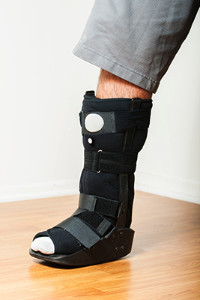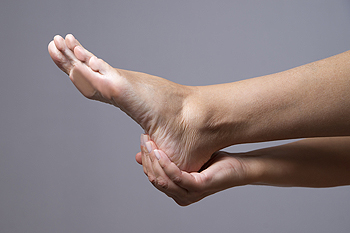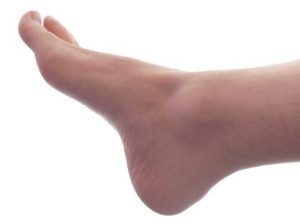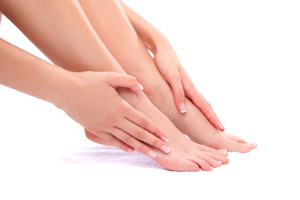Items filtered by date: October 2017
Dolphins Guard Anthony Steen Sidelined for Foot Injury
 Miami Dolphins Guard Anthony Steen was sidelined after sustaining an injury during the Dolphins and Jets game. Steen will not be playing against the Baltimore Ravens and it is not certain just how long he will be out for. The injury left him wearing a walking boot but it is otherwise unknown how severe the injury is. Steen is one of the Dolphins starting offensive linemen and was frequently positioned as left guard this season. It is expected that Jesse Davis will take over in his spot, which would be Davis' NFL debut.
Miami Dolphins Guard Anthony Steen was sidelined after sustaining an injury during the Dolphins and Jets game. Steen will not be playing against the Baltimore Ravens and it is not certain just how long he will be out for. The injury left him wearing a walking boot but it is otherwise unknown how severe the injury is. Steen is one of the Dolphins starting offensive linemen and was frequently positioned as left guard this season. It is expected that Jesse Davis will take over in his spot, which would be Davis' NFL debut.
Sports related foot and ankle injuries require proper treatment before players can go back to their regular routines. For more information, contact Dr. Ronald Sheppard of Warren-Watchung Podiatry Center. Our doctor can provide the care you need to keep you pain-free and on your feet.
Sports Related Foot and Ankle Injuries
Foot and ankle injuries are a common occurrence when it comes to athletes of any sport. While many athletes dismiss the initial aches and pains, the truth is that ignoring potential foot and ankle injuries can lead to serious problems. As athletes continue to place pressure and strain the area further, a mild injury can turn into something as serious as a rupture and may lead to a permanent disability. There are many factors that contribute to sports related foot and ankle injuries, which include failure to warm up properly, not providing support or wearing bad footwear. Common injuries and conditions athletes face, including:
- Plantar Fasciitis
- Plantar Fasciosis
- Achilles Tendinitis
- Achilles Tendon Rupture
- Ankle Sprains
Sports related injuries are commonly treated using the RICE method. This includes rest, applying ice to the injured area, compression and elevating the ankle. More serious sprains and injuries may require surgery, which could include arthroscopic and reconstructive surgery. Rehabilitation and therapy may also be required in order to get any recovering athlete to become fully functional again. Any unusual aches and pains an athlete sustains must be evaluated by a licensed, reputable medical professional.
If you have any questions please feel free to contact one of our offices located in Marlboro and Watchung, NJ . We offer the newest diagnostic and treatment technologies for all your foot and ankle needs.
Read more about Sports Related Foot And Ankle InjuriesWhat to Do About Foot Pain
 Foot pain can be a very debilitating condition to experience. First, however, it is important to figure out what is causing it. Plantar fasciitis is one of the most common causes of heel pain. Standing for long periods of time and overuse can cause the plantar fascia to become inflamed. Plantar fasciitis can affect anyone. Thankfully there are a number of treatments available for heel pain, with many of them being very easy to do. Keeping pressure off the feet, resting, and avoiding overuse can improve the condition of many who suffer from plantar fasciitis. Another method for treating heel pain includes buying a new pair of well-fitted shoes. Look for a pair that is not too tight or loose for your feet. Shoes should also have enough space in the toe box for your toes to wiggle around. Finally, look for a pair that is comfortable and that would be fine to wear for long periods of time. If you have heel or general foot pain that will not go away, see a podiatrist for a diagnosis and proper treatment.
Foot pain can be a very debilitating condition to experience. First, however, it is important to figure out what is causing it. Plantar fasciitis is one of the most common causes of heel pain. Standing for long periods of time and overuse can cause the plantar fascia to become inflamed. Plantar fasciitis can affect anyone. Thankfully there are a number of treatments available for heel pain, with many of them being very easy to do. Keeping pressure off the feet, resting, and avoiding overuse can improve the condition of many who suffer from plantar fasciitis. Another method for treating heel pain includes buying a new pair of well-fitted shoes. Look for a pair that is not too tight or loose for your feet. Shoes should also have enough space in the toe box for your toes to wiggle around. Finally, look for a pair that is comfortable and that would be fine to wear for long periods of time. If you have heel or general foot pain that will not go away, see a podiatrist for a diagnosis and proper treatment.
Many people suffer from bouts of heel pain. For more information, contact Dr. Ronald Sheppard of Warren-Watchung Podiatry Center. Our doctor can provide the care you need to keep you pain-free and on your feet.
Causes of Heel Pain
Heel pain is often associated with plantar fasciitis. The plantar fascia is a band of tissues that extends along the bottom of the foot. A rip or tear in this ligament can cause inflammation of the tissue.
Achilles tendonitis is another cause of heel pain. Inflammation of the Achilles tendon will cause pain from fractures and muscle tearing. Lack of flexibility is also another symptom.
Heel spurs are another cause of pain. When the tissues of the plantar fascia undergo a great deal of stress, it can lead to ligament separation from the heel bone, causing heel spurs.
Why Might Heel Pain Occur?
- Wearing ill-fitting shoes
- Wearing non-supportive shoes
- Weight change
- Excessive running
Treatments
Heel pain should be treated as soon as possible for immediate results. Keeping your feet in a stress-free environment will help. If you suffer from Achilles tendonitis or plantar fasciitis, applying ice will reduce the swelling. Stretching before an exercise like running will help the muscles. Using all these tips will help make heel pain a condition of the past.
If you have any questions please contact one of our offices located in Marlboro and Watchung, NJ . We offer the newest diagnostic and treatment technologies for all your foot and ankle needs.
Read more about Heel PainWhat is Tarsal Tunnel Syndrome?
 Tarsal tunnel syndrome is a condition in which the posterior tibial nerve in the tarsal tunnel becomes pinched or compressed. This causes a number of symptoms including burning and shooting pain, a pins and needles sensation, numbness, and tightness in the foot. There are several reasons why the nerve could become compressed, which include bony prominences, bone spurs, abnormal heel position, and the swelling of tendons in the tarsal tunnel. Due to the nature of tarsal tunnel syndrome, diagnosis may be difficult because it can seem to mimic the symptoms of other conditions; heel pain and arch pain are some examples. It is best to see a podiatrist if you are experiencing any of those symptoms. Podiatrists can offer a number of treatments, such as orthotics, taping or bracing, rest, icing, anti-inflammatory medication, or even surgery if other treatments do not improve your condition.
Tarsal tunnel syndrome is a condition in which the posterior tibial nerve in the tarsal tunnel becomes pinched or compressed. This causes a number of symptoms including burning and shooting pain, a pins and needles sensation, numbness, and tightness in the foot. There are several reasons why the nerve could become compressed, which include bony prominences, bone spurs, abnormal heel position, and the swelling of tendons in the tarsal tunnel. Due to the nature of tarsal tunnel syndrome, diagnosis may be difficult because it can seem to mimic the symptoms of other conditions; heel pain and arch pain are some examples. It is best to see a podiatrist if you are experiencing any of those symptoms. Podiatrists can offer a number of treatments, such as orthotics, taping or bracing, rest, icing, anti-inflammatory medication, or even surgery if other treatments do not improve your condition.
Tarsal tunnel syndrome can be very uncomfortable to live with. If you are experiencing tarsal tunnel syndrome, contact Dr. Ronald Sheppard of Warren-Watchung Podiatry Center. Our doctor can provide the care you need to keep you pain-free and on your feet.
Tarsal Tunnel Syndrome
Tarsal tunnel syndrome, which can also be called tibial nerve dysfunction, is an uncommon condition of misfiring peripheral nerves in the foot. The tibial nerve is the peripheral nerve in the leg responsible for sensation and movement of the foot and calf muscles. In tarsal tunnel syndrome, the tibial nerve is damaged, causing problems with movement and feeling in the foot of the affected leg.
Common Cause of Tarsal Tunnel Syndrome
- Involves pressure or an injury, direct pressure on the tibial nerve for an extended period of time, sometimes caused by other body structures close by or near the knee.
- Diseases that damage nerves, including diabetes, may cause tarsal tunnel syndrome.
- At times, tarsal tunnel syndrome can appear without an obvious cause in some cases.
The Effects of Tarsal Tunnel Syndrome
- Different sensations, an afflicted person may experience pain, tingling, burning or other unusual sensations in the foot of the affected leg.
- The foot muscles, toes and ankle become weaker, and curling your toes or flexing your foot can become difficult.
- If condition worsens, infections and ulcers may develop on the foot that is experiencing the syndrome.
A physical exam of the leg can help identify the presence of tarsal tunnel syndrome. Medical tests, such as a nerve biopsy, are also used to diagnose the condition. Patients may receive physical therapy and prescriptive medication. In extreme cases, some may require surgery.
If you have any questions please feel free to contact one of our offices located in Marlboro and Watchung, NJ . We offer the newest diagnostic and treatment technologies for all your foot and ankle needs.
Read more about Tarsal Tunnel SyndromeCommon Conditions That Afflict the Foot
 Our feet are an important part of our bodies and require good care to keep us going. Here are some common foot ailments and ways to treat them. A bunion, or the misalignment of the big toe, can be worsened by improper footwear, such as high heels or poorly fitted shoes. To prevent this, wear well-fitted and supportive shoes that provide ample toe space. Calluses and corns are caused by repeated friction on an area, which results in the buildup of hard skin. Preventing friction is the best way to stop both, so wearing quality socks and shoes that don’t rub up against the skin are best. If you do develop calluses or corns, it is recommended to see a podiatrist. Sometimes, viruses can enter the skin on our feet through tiny cuts or scrapes and cause verrucas, or plantar warts. Plantar warts are contagious, so it is recommended to see a podiatrist who can treat them. If you use public showers, wear shower shoes to prevent catching viruses and fungal infections, such as athlete’s foot. Ingrown toenails can occur if pressure is put on the nail or if the nails are cut too short. Athlete’s foot and fungal nails are both caused by fungi. While there are over-the-counter ointments that you can buy, podiatrists can prescribe better options. Finally flat feet, which are caused by fallen arches, can be taken care of with custom-made orthotics from a podiatrist.
Our feet are an important part of our bodies and require good care to keep us going. Here are some common foot ailments and ways to treat them. A bunion, or the misalignment of the big toe, can be worsened by improper footwear, such as high heels or poorly fitted shoes. To prevent this, wear well-fitted and supportive shoes that provide ample toe space. Calluses and corns are caused by repeated friction on an area, which results in the buildup of hard skin. Preventing friction is the best way to stop both, so wearing quality socks and shoes that don’t rub up against the skin are best. If you do develop calluses or corns, it is recommended to see a podiatrist. Sometimes, viruses can enter the skin on our feet through tiny cuts or scrapes and cause verrucas, or plantar warts. Plantar warts are contagious, so it is recommended to see a podiatrist who can treat them. If you use public showers, wear shower shoes to prevent catching viruses and fungal infections, such as athlete’s foot. Ingrown toenails can occur if pressure is put on the nail or if the nails are cut too short. Athlete’s foot and fungal nails are both caused by fungi. While there are over-the-counter ointments that you can buy, podiatrists can prescribe better options. Finally flat feet, which are caused by fallen arches, can be taken care of with custom-made orthotics from a podiatrist.
Everyday foot care is very important to prevent infection and other foot ailments. If you need your feet checked, contact Dr. Ronald Sheppard from Warren-Watchung Podiatry Center. Our doctor can provide the care you need to keep you pain-free and on your feet.
Everyday Foot Care
Often, people take care of their bodies, face and hair more so than they do for their feet. But the feet are a very important aspect of our bodies, and one that we should pay more attention to. Without our feet, we would not be able to perform most daily tasks.
It is best to check your feet regularly to make sure there are no new bruises or cuts that you may not have noticed before. For dry feet, moisturizer can easily be a remedy and can be applied as often as necessary to the affected areas. Wearing shoes that fit well can also help you maintain good foot health, as well as making it easier to walk and do daily activities without the stress or pain of ill-fitting shoes, high heels, or even flip flops. Wearing clean socks with closed shoes is important to ensure that sweat and bacteria do not accumulate within the shoe. Clean socks help to prevent Athlete’s foot, fungi problems, bad odors, and can absorb sweat.
If you have any questions please feel free to contact one of our offices located in Marlboro and Watchung, NJ . We offer the newest diagnostic and treatment technologies for all your foot and ankle needs.
Read more about Every Day Foot CareWhat Do Podiatrists Do?
 Podiatrists are medical doctors who specialize in the foot and ankle. Officially known as a Doctor of Podiatric Medicine (DPM), podiatrists have the knowledge and ability to diagnose and treat any foot ailment. This includes minor ones such as toenail fungus, cracked heels, and heel pain, to more major problems such as an Achilles tendon rupture or a broken foot. They can also provide items such as custom-made orthotics to help give your feet proper support and keep them aligned. For those with diabetes, it is highly recommended to see a podiatrist. Diabetics generally have reduced blood flow and neuropathy in the foot, which in their worst cases can lead to infected ulcers and an increased risk of amputation. If you are experiencing any pain or have any foot abnormalities, it is important to see a podiatrist.
Podiatrists are medical doctors who specialize in the foot and ankle. Officially known as a Doctor of Podiatric Medicine (DPM), podiatrists have the knowledge and ability to diagnose and treat any foot ailment. This includes minor ones such as toenail fungus, cracked heels, and heel pain, to more major problems such as an Achilles tendon rupture or a broken foot. They can also provide items such as custom-made orthotics to help give your feet proper support and keep them aligned. For those with diabetes, it is highly recommended to see a podiatrist. Diabetics generally have reduced blood flow and neuropathy in the foot, which in their worst cases can lead to infected ulcers and an increased risk of amputation. If you are experiencing any pain or have any foot abnormalities, it is important to see a podiatrist.
If you are experiencing pain in the feet or ankles, don’t join the stubborn majority refusing treatment. Feel free to contact Dr. Ronald Sheppard from Warren-Watchung Podiatry Center. Our doctor can provide the care you need to keep you pain-free and on your feet.
What Is a Podiatrist?
Someone would seek the care of a podiatrist if they have suffered a foot injury or have common foot ailments such as heal spurs, bunions, arch problems, deformities, ingrown toenails, corns, foot and ankle problems, etc.
Podiatric Treatment
A podiatrist will treat the problematic areas of the feet, ankle or lower leg by prescribing the following:
- Physical therapy
- Drugs
- Orthotic inserts or soles
- Surgery on lower extremity fractures
A common podiatric procedure a podiatrist will use is a scanner or force plate which will allow the podiatrist to know the designs of orthotics. Patients are then told to follow a series of tasks to complete the treatment. The computer will scan the foot a see which areas show weight distribution and pressure points. The podiatrist will read the analysis and then determine which treatment plans are available.
If you have any questions please feel free to contact one of our offices located in Marlboro and Watchung, NJ . We offer the newest diagnostic and treatment technologies for all your foot and ankle needs.
Read more about What is a Podiatrist?